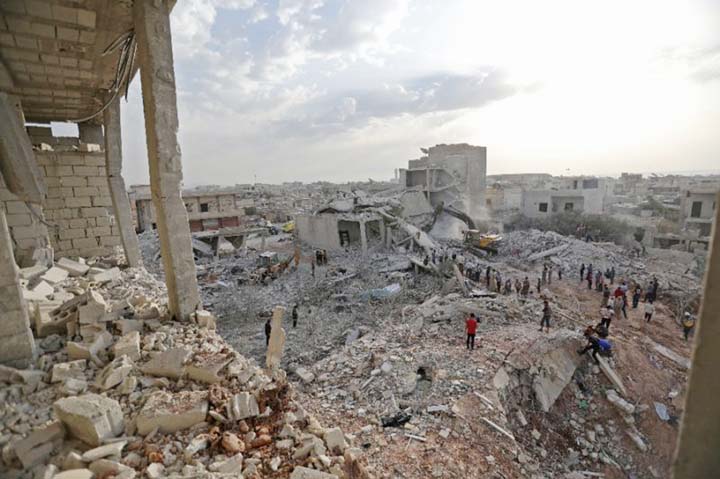
AFP, Beirut :
The Islamic State group may have lost most of its territory in Syria but recent deadly attacks against pro-regime fighters are a foretaste of more to come, analysts say.
Despite pro-government forces ousting IS from urban centres in eastern Syria last year, surprise raids there in past weeks have killed dozens of regime and allied fighters. On Friday, the jihadist group rammed into Albu Kamal on the Iraqi border in its first major incursion inside the town in more than half a year.
Despite being expelled from most towns of the proto-state it declared in 2014 in Syria and neighbouring Iraq, analysts say IS has retained the ability to pounce from the desert. “When the (Syrian) regime or the Iraqi government declared that they were able to vanquish IS, this is a very inaccurate statement,” military analyst Nawar Oliver at the Turkey-based Omran Institute said.
“You were able to vanquish IS in the city-such as Deir Ezzor, Albu Kamal, Mayadeen, Palmyra-but you were not able to get rid of IS in the desert, which is your main problem right now,” he said.
Syria’s army backed by Russia retook these urban areas last year, the first three in the eastern province of Deir Ezzor and the last in the central province of Homs.
The jihadists consider raids like those on Albu Kamal to be victories, Oliver said, but there will be many more hit-and-run raids to come.
“The attacks will continue launched from the desert, targeting pipelines, main roads, border crossings-which will give any government a huge headache,” he said.
The border post near Albu Kamal is for now controlled by Syrian and Iraqi forces, but activist Omar Abu Leila said there was undoubtedly coordination between IS fighters on both sides of the frontier.
This came through “their hidden movement through the deserts and through disguise-perhaps with the uniforms of local drivers”, the Deir Ezzor native said.
Analyst Hassan Hassan, a senior fellow at the Tahrir Institute, warned the jihadists would continue to rely on their deep knowledge of Syria’s vast desert and adjacent Iraqi areas in coming years.
“Eastern Syria and northeastern Iraq will continue to be the soft underbelly of both countries, and where IS will operate for many years to come,” he said.
“The group knows the area very well, has established an insurgency infrastructure in the deserts, river valleys and rural areas stretching from Kirkuk and Diyala in Iraq to the Qalamun region near Damascus in Syria.”

